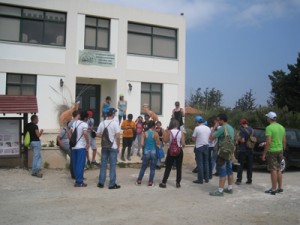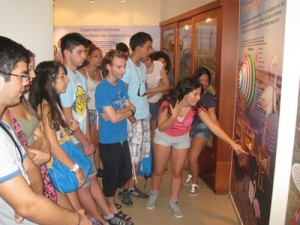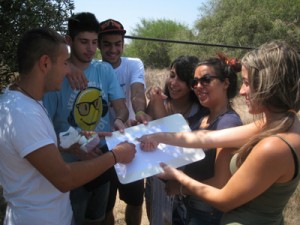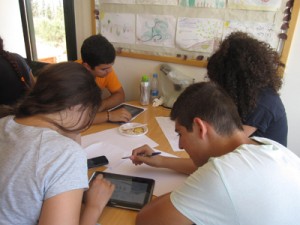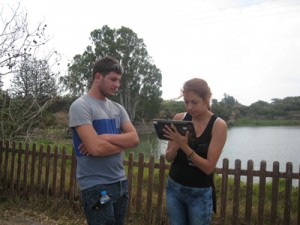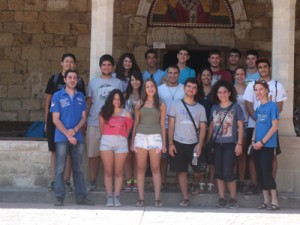
From July 15 to July 19, 2013, the Department of Communication and Internet Studies of the Cyprus University of Technological (CUT), in cooperation with the Cyprus Centre for Environmental Research and Education (CYCERE), organized a summer club for high school students. The club was under the auspices of the European program PROFILES, which is locally represented by the Cyprus University of Technology (http://www.profiles-project.eu/, http://www.cut.ac.cy/profiles/), and is funded by the “Science in Society” programme (FP7).
The summer club that was coordinated by the Assistant Professor Dr. Eleni A. Kyaza and organized by PROFILES research associate and member of the pedagogical-research team of the Cyprus Centre for Environmental Research and Education, Mr. Yiannis Georgiou, was established for the first time in 2013. The club addressed students with special interest in Physical & Environmental Sciences and New Technologies, and 18 high school students from nine lyceums from Limassol and Nicosia participated in it.
The Club’s main goals was to give students the opportunity to take part in innovative educational activities related to New Learning Technologies and Natural and Environmental Sciences, as well as to get acquainted with the Cyprus University of Technology through a variety of activities and guided tours. Through this combination, the Summer Club was a particularly interesting, educational experience for all the students who participated in it.
In particular, students had the opportunity to participate in a series of educational activities aimed at cultivating and promoting scientific literacy. In this context, two day visits at the Cyprus Centre for Environmental Research and Education were held in the Akrotiri area. During these visits, students had the opportunity to take part in the Environmental Education Programme “Biodiversity: The Diversity of Life” and to engage in a series of educational activities aimed at cultivating exploration skills with on-site field studies, as well as promoting of conceptual understanding and environmental awareness of the biodiversity issue. In addition, the students participated in the augmented reality application “Tracers”, in which they were asked to investigate the mysterious decline in the poppy head population by going to the Bishops Pool and collecting a series of data that involved them in exploring of ecological problems such as eutrophication, bio accumulation and poaching. Finally, tours were held both in the museum-educational and exhibition area of the environmental centre, as well as in other places of interest in the area, such as the historical monastery of Saint Nicholas of the cats.
In conjunction with the above educational activities, it is worth mentioning that the students had the opportunity to get a first taste and to get to know the Technological University better and how it works through visits and presentations in places of interest such as the recto rate, the library and the radio station of the university.
 Κυπριακό Κέντρο Περιβαλλοντικής Έρευνας & Εκπαίδευσης – Κυκπεε
Κυπριακό Κέντρο Περιβαλλοντικής Έρευνας & Εκπαίδευσης – Κυκπεε
